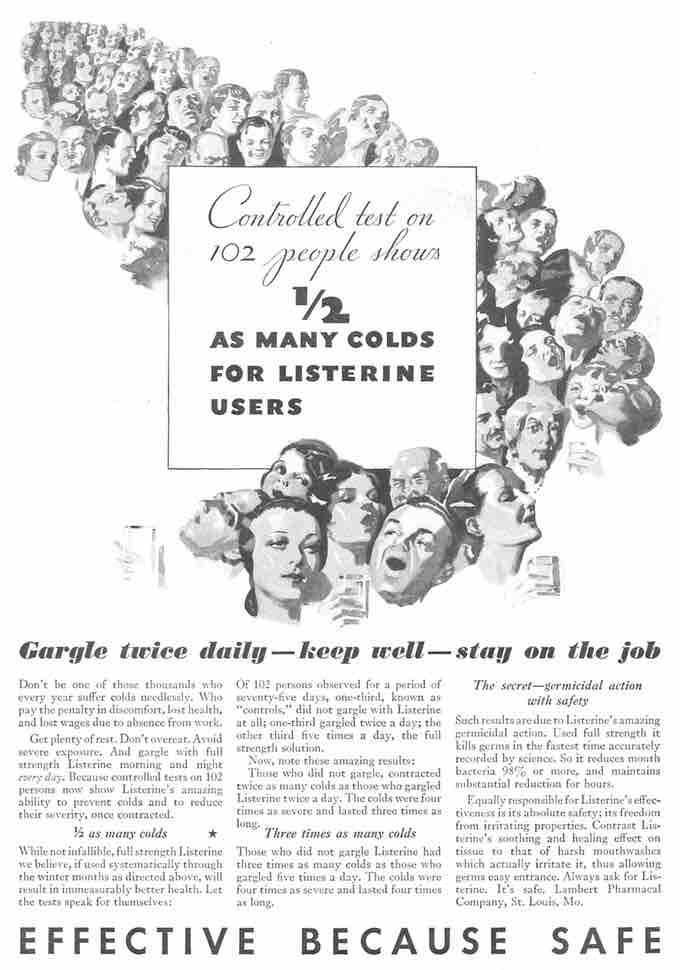Illegal Price Advertising
Deceptive or false advertising is the use of misleading or outright false statements by companies in their advertising and promotional material. Depending on the type and the severity, deceptive advertising is usually illegal, because it is recognized that advertising has the potential to persuade people to enter into commercial transactions that they may otherwise avoid. However, advertisers still find ways to deceive consumers in ways that are legal or technically illegal but unenforceable.
Types of Illegal price advertising
Hidden fees and surcharges
These are fees that are not stated in the advertised price. These are particularly common for services, such as cell phone activation, broadband, gym memberships, and air travel. Generally, companies get away with it, because the fees are hidden in fine print and obfuscated by technical language.
"Going out of business" sales
Often, companies that supposedly are liquidating will raise prices on items marked for clearance, meaning that the company increases the price and "discounts" it. Thus, the discount is less than advertised. Another case, at liquidating stores (if it is a retail chain), the sales prices at the chain's other stores is lower than the liquidator's prices at the closing stores. On top of this, sale items are often "final sale," meaning returns are not accepted. Thus, there is no recourse for customers.
Manipulation of measurement units and standards
Sellers may manipulate standards to mean something different than their widely understood meaning. One example is the personal computer's hard drive. By stating the sizes of hard drives in "megabytes" of 1,000,000 bytes, instead of 1,048,576, they overstate capacity by nearly 5%. With gigabytes, the error increases to over 7% (1,073,741,824, instead of 1,000,000,000) and nearly 10% for the newer terabyte. Seagate Technology and Western Digital were sued in a class-action suit for this deception. Both companies agreed to settle the suit and reimburse customers in kind, yet they still continue to advertise this way.
In another example, Fretter Appliance stores claimed "I'll give you five pounds of coffee if I can't beat your best deal. " While initially they gave away that quantity, they later redefined them as "Fretter pounds," which, unsurprisingly, were much lighter than standard pounds.
Fillers and oversized packaging
Some products are sold with fillers, which increase the legal weight of the product with something that costs the producer very little compared to what the consumer thinks that he or she is buying. Food is an example of this, where TV dinners are filled with gravy or other sauce instead of meat. Malt and cocoa butter have been used as filler in peanut butter.
Manipulation of terms
Many terms do have some meaning, but the specific extent is not legally defined, leading to their abuse. A frequent example (until the term gained a legal definition) was "organic" food. "Light" food also is an even more common manipulation: The term has been variously used to mean low in calories, sugars, carbohydrates, salt, texture, thickness (viscosity), or even light in color. Tobacco companies, for many years, used terms like "low tar," "light," "ultra-light," "mild," or "natural" in order to imply that products with such labels have less detrimental effects on health but in recent years, it was proven that those terms were considered misleading. Naturally, these manipulations of terms are used to charge a higher price, particularly on "'organic" products.
Incomplete/inconsistent comparison
"Better" means one item is superior to another in some way, while "best" means it is superior to all others in some way. However, advertisers frequently fail to list in what way the items are being compared (price, size, quality, etc.) and, in the case of "better," to what they are comparing. In an inconsistent comparison, an item is compared with many others, but only compared with each on the attributes where it wins, leaving the false impression that it is the best of all products, in all ways. This is common with price-comparing Internet websites.
Advertisers advertise an item that is unavailable when the consumer arrives at the store and is then sold a similar product at higher price. Bait-and-switch is legal in the United States, provided that ads state that there is a limited supply and that no rain checks will be offered.
Legal regulations
Advertising is regulated by the authority of the Federal Trade Commission to prohibit "unfair and deceptive acts or practices in commerce. " What is illegal is the potential to deceive, which is interpreted to occur when consumers see the advertising to be stating to them, explicitly or implicitly, a claim that they may not realize is false and material. The goal is prevention rather than punishment, reflecting the purpose of civil law in setting things right rather than that of criminal law.

Listerine advertisement, 1932
From 1921 until the mid-1970s, Listerine was also marketed as a preventive and remedy for colds and sore throats. In 1976, the Federal Trade Commission ruled that these claims were misleading, and that Listerine had "no efficacy" at either preventing or alleviating the symptoms of sore throats and colds. Warner-Lambert was ordered to stop making the claims, and to include in the next $10.2 million dollars' of Listerine ads specific mention that "contrary to prior advertising, Listerine will not help prevent colds or sore throats or lessen their severity. "